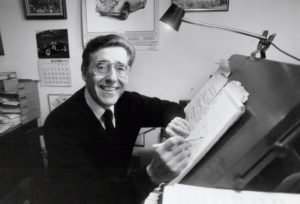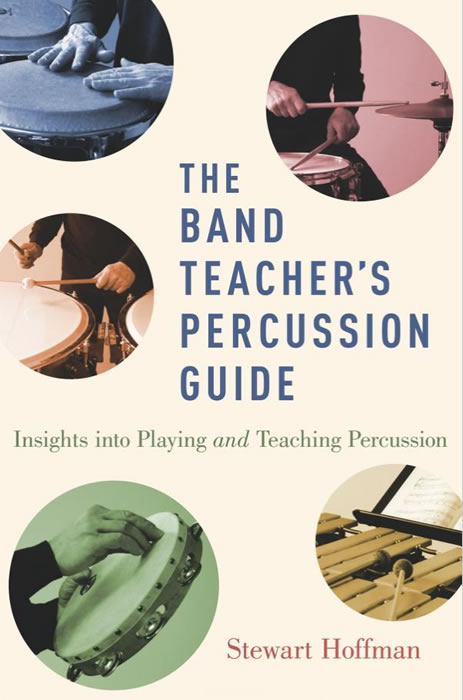Walking History of Jazz
(Profile of pianist Gene DiNovi)
The National Post, 29 February, 2000

Pianist Gene DiNovi seems to know every song ever written, and most of the people who wrote them.
The year 1948 was a big one for pianist Gene DiNovi. He went on the road with singer Anita O’Day, and recorded with saxophone giant Lester Young. He recorded for Artie Shaw too, but – not satisfied with his bass player – the cocky, 20-year old pianist turned down Shaw’s offer to join the band. “Like a jerk!” adds DiNovi, still scolding himself half a century later.
He didn’t repeat the mistake when, that same year, Benny Goodman was left stranded at a recording session, having exchanged a few choice words with pianist Mary Lou Williams. An eleventh-hour call to DiNovi’s Brooklyn home sent him dashing immediately to the Manhattan recording studio. He would play with Goodman, on and off, over the next two decades, and in spite of the clarinetist’s oft reported shabby treatment of musicians, the 71-year old DiNovi prefers to reflect on the more idyllic moments spent in Goodman’s Connecticut home. “We’d sit in his studio and play all day, just clarinet and piano,” adding wistfully: “I loved playing for him.”
It was the Goodman connection that indirectly led to DiNovi’s collaboration with Canadian clarinetist James Campbell. Though not the musician you would immediately associate with DiNovi – the internationally renowned soloist built his reputation interpreting Brahms sonatas rather than Irving Berlin songs – the two hit it off when they met in Toronto in the mid-’80s. Campbell subsequently recorded Divertimento, a piece DiNovi wrote for Benny Goodman, and they’ve been playing their brand of light classics and jazz ever since. They paid further homage to Goodman, Shaw and other clarinetist greats at the end of February when they performed and recorded Heritage at Indiana University, where Campbell has been teaching since 1988. David Baker, head of the university’s jazz department, wrote the work specifically with DiNovi and Campbell in mind. “We’ll be playing,” says Campbell, “and Gene will say ‘Benny used to do this’ or ‘Artie did that. Why don’t you try that?'” Not surprisingly, Campbell refers to DiNovi as “a walking history of jazz,” and the Smithsonian Institute seems to agree: in 1997 representatives spent two days in Toronto, culling hours of stories from DiNovi for the Institute’s Oral Jazz History Program.
To anyone who heard Gene DiNovi discuss the great song writers on CBC Radio’s Morningside, or to those who watched him chat with Hollywood’s legendary composers on TVOntario’s The Music Room in the early ’80s, the Smithsonian’s interest comes as no surprise. DiNovi is a born raconteur, who seems to know every song ever written, and most of the people who wrote them. When, on one Music Room broadcast, DiNovi sings an impromptu 42nd Street with its then 86-year old composer, Harry Warren, the scene plays like an intimate moment between family members captured on home video. Which is not far off the mark, considering DiNovi used to affectionately refer to Warren as “Uncle Harry”. In a career that took him from New York’s 52nd Street to Hollywood, it seems he just may have played with everybody in the business. “I’m on Zappa’s first two albums,” he says, then adds with a laugh, “I’m an auxiliary Mother of Invention.”
DiNovi played his first gigs while in his early teens, in Brooklyn where he grew up; by 1944, still only 15-years-old, he was sitting in at the jazz clubs that lined 52nd Street. His baptism of fire took place at the Spotlight, where Dizzy Gillespie, who kept tabs on the hot, young players in town, called DiNovi onto the stage one night. He set a blistering tempo for All the Things You Are, but the voltage metre soared still higher when Charlie Parker burst into the room from the back kitchen, ripping into the kind of solo that drove crowds into a frenzy. The music, says DiNovi, confounded him completely. “I knew something great was happening, but I didn’t know what the hell it was.”
But DiNovi wasn’t the only youngster on stage that night; he recalls a still reverential Miles Davis down on his hands and knees fixing a loose bass drum pedal for Max Roach. “Ten years later,” says DiNovi, “he wouldn’t have paid a dime to see the Statue of Liberty dance.”
Gene DiNovi’s association with singers started with Anita O’Day, and he would go on to work with Peggy Lee and Tony Bennett. But the singer to whom he owes the greatest debt is Lena Horne. She introduced Have a Heart, a song DiNovi wrote with the great lyricist Johnny Mercer, and it was from Horne that he learned the fine points of dealing with singers and actors, “how to make them use what they have and get through a musical event they would find difficult.” Not that his efforts always met with success. “If Raquel Welch had to sing in London, they’d bring me over to make her sing. I used to fail – but I’d get nice trips out of it.”
Moving to Los Angeles around 1960 drew DiNovi still further into the world of songwriting. In fact, the scenes he describes seem as clichéd as an old Hollywood movie: DiNovi getting a call to drop by a party at Danny Thomas’s house “just in case Barbra (Streisand) wants to sing”; or Sunday nights in the living room of Dick van Dyke Show producer Lou Edelman, where the greatest songwriters of the day swapped stories while listening to DiNovi play their tunes.
He worked mostly for Desi-Lu, producers of the van Dyke, Thomas and Andy Griffith shows, but also recorded everything from cartoons to the score for Dr. Zhivago. Then suddenly, after about ten years, the work dried up. “If you were over thirty,” says DiNovi, “you were persona non grata in Los Angeles.” Playing a week at Toronto’s old Colonial Tavern with singer Carmen McRae in 1971 convinced DiNovi of where his next move should be. “Toronto reminded me of New York in the ’40s and ’50s,” he says. “It was sophisticated, and I just liked the feel of it.”
Today, DiNovi picks and chooses what he wants to play, leaving him more time for his wife and 15-year old son. His two daughters from a previous marriage live in Los Angeles. He practises a lot of Bach and Ravel, and plays the odd jazz club. A solo recording of the music of Benny Carter was recently released. But it’s mostly his work with Campbell that keeps him busy; aside from the trip to Indiana, there’s a concert with the Windsor Symphony on March 11 and 12, then trips to Holland and Japan, where he’ll likely be the only jazz pianist at the otherwise classical music festivals. “The way he plays jazz is so colourful,” says Campbell, “that when the classical players hear him, they go nuts. Some pretty snobby chamber music audiences have come closer to jazz because of Gene’s playing.”
He’s also looking forward to two weeks at Quebec’s Orford Arts Centre toward the end of June, where he’ll teach jazz and, of course, the popular song.
And just how does the state of songwriting today compare to that of the golden years? “There’s no contest,” says DiNovi, without any hesitation. “A really good writer, like Paul Simon, would have been like Irving Berlin if he were born twenty years earlier. He’s done some wonderful things. He didn’t write 800 songs like Irving Berlin though – Irving used to spill three or four before breakfast.”
(Profile of pianist Gene DiNovi)


